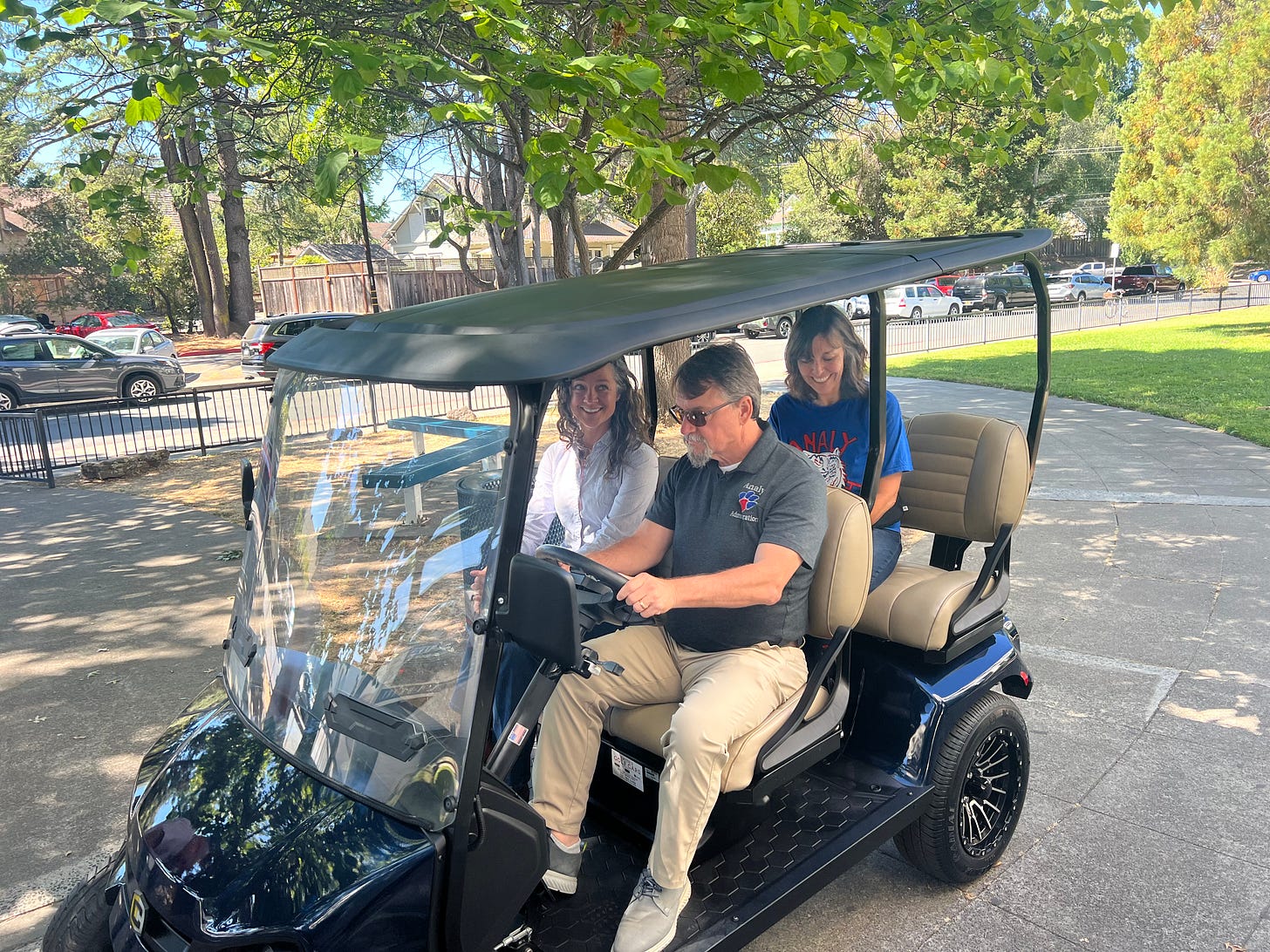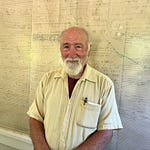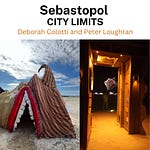In this audio interview recorded last Friday, a day after school started, Chuck Wade, the principal of Analy High School, reflects on the first week of the new school year and changes from his first year as principal. He says that his job is both “exhilarating and exhausting” and one that Wade really loves doing. The assembly on the first day of school featured dance performances by students and included staff doing their own dance routine for students. Among his the challenges are student anxiety and the cellphone problem, which is connected to the bathroom problem, which is connected to the vaping problem...
Key topics of discussion included a new focus on collaboration among teachers, the increase in student numbers, two new vice principals, and more work on belonging, inclusion, and safety. Wade addressed policies on cell phone use and efforts to stop bathroom vandalism, along with initiatives to stop vaping. Increasingly, there’s a role for the Wellness Center in helping students instead of just punishing them.
Wade talks about continuing to watch the problems of students hanging out at Safeway after school. And the administration has a new tool, a street-legal golf cart for trips on and off campus. Additionally, Wade discussed introduction of dual enrollment classes with the Santa Rosa Junior College and community partnerships for student internships.
I really do feel like the kind of thing we're trying to do in public education generally, and in a pluralist society but here specifically, it feels audacious and important. Even on the hardest days, I feel a little bit like, yeah, bring that on.
Transcript of interview
Dale: Chuck, it's good to see you. School just started this this week at Analy High School.
First Week of School Highlights
Chuck: Thanks for having me. Yeah, it's been an exciting week. I can't believe it's already been the end of the first week. It went by super fast. We have more kids than we had last year, and it was actually a really a positive vibe, I would say, around campus. Super sweet. The quad is, one of my big reactions and surprises, is the quad is squeaky clean. I don't know what's going on. I've never seen it like that before.
Dale: It's been trashed up a bit in the past.
Chuck: No, after lunchtime, there'll be paper and wrappers and things like that. That kind of ebbs and flows throughout the school year. But this week it's been spotless. So I'm like, wow, okay, that's a good omen.
Dale: What was your first day back to school like? What do you do?
Back-to-School Assembly
Chuck: We actually started with an assembly on the football field. So all 1, 476 or so students came down to the football field. We had a welcome message for them. They heard from the Associated Student Body President Paige Goodson and she spoke. And then we had three dance performances, essentially, for them. One by the Analy dance team, one by the cheerleading squad, and one by the staff.
It's actually a tradition that started at El Molino that has been brought here and it's very sweet.
Dale: Do you practice leading up to it?
Chuck: Yeah. We do Jolene Johnson our dance director. Yeah, she choreographs something special for us every year and records a video and shares it with everybody and we have a couple different practice sessions and then and then we perform it for the students as a welcome back.
Dale: Can you describe it? The song or the routine.
Chuck: Yeah, I'm probably not the best person to describe the routine. Full disclosure I stood behind Lily Borgeson, who's another great dancer on staff and has a lot of ballet background. And I tried to do what she was doing and probably was not nearly as graceful.
But it's a sweet, it's a sweet experience. I think it, allows students to see staff taking a little risk, trying some new things, going out on a limb. And that's what a lot of them are doing as well, coming to a big comprehensive high school, in the first couple of days trying to get acclimated with a whole bunch of new folks and make new friends and try new classes and all that kind of stuff.
Think it's a really lovely way to, to welcome folks back.
We're trying new things around belonging and inclusion on campus and then safety and culture, which are closely related.
Principal's Reflections on First Year
Dale: So you've had your own summer time to think back on your first year as principal what stands out for you from last year? But more like things that you learned about the role, things that are important to you now going into your second year.
Chuck: Wow. There are a lot of things to choose from there, Dale. I learned a lot. I think first and foremost, last year just learning sort of the scope of the job. Analy is-- it's many things to many people, right? It's super important to a lot of folks, and there is something happening here always, even this summer. It was super busy. The campus is well used, loved by students and the community. It's a, as I think you recognize, a central part of this community.
And so I think just learning all of the important parts of the things that go on in the high school and my role, in, in supporting that, that rich life of this facility was a big task. I think I'm still learning some things but I do feel like I had just a crash course in all the things that this kind of a place can do and be for the students and the community at large which is exhilarating, sometimes exhausting.
But it's quite something. I think that's one of the things that — one of the many things really that was awe inspiring about Analy and learning about Analy is just what an amazing place it is and the kinds of things that it can do for different folks and the kinds of meaning that it holds for different people in different ways.
Last year, obviously my first time being principal here was frequently surprised. Oh that's a thing we've got going on this week and it requires this and this in terms of meetings and planning and preparation and permitting and, all the kinds of things that need to happen.
Because a lot of those things were surprises for me. I had to scramble quite a bit. I anticipate at least a lot less scrambling this year. I'm super excited about that, that I'll know what's coming and I'll know at least a little bit better how to drive this big thing and do what needs, doing to make those really cool things happen.
Dale: Is it fair to say you enjoyed yourself?
Chuck: Yeah, I think that's true.
Dale: Like you found something you really like doing?
Chuck: It seems that way. Totally is true. I won't deny there were some days when that wasn't necessarily the first one that would come to mind but most days at the end of the day definitely. And even on the, on those other days, I have to say I've enjoyed that hard piece quite a bit too. I really do feel like the kind of thing we're trying to do, in public education generally, and in a pluralist society but here specifically it does feel audacious and important. Even on the hardest days, I feel a little bit like, yeah, bring that on.
That's the hard work I want to do. So I enjoy that too, even when it's pretty taxing.
New Vice Principals and Their Roles
Dale: What kind of changes have happened since last year? I think now you have a total of three vice principals. Two of them are new. Is that true?
Chuck: That's correct. And so one additional vice principal, which is obviously a huge change for the admin team for how we will work to support students and staff. It's huge. I really am grateful to the board and the district and the whole community for figuring out a way to make that happen. I think it'll make us a lot more effective. We're trying new things around a couple big areas I'll mention are belonging and inclusion on campus and then sort of safety and culture kinds of things, which are closely related. Some of it is there's just some people power that we will have access to this year that we didn't last.
And so already we're trying some new things around cell phones and bathrooms and those kinds of things in terms of policy and sort of procedure and how we implement those things and the ability of the administrative staff to keep on top of it.
And I think that's important. Just on that very mundane practical level, we'll have a lot more time to dedicate to taking care of those things that can help the campus feel more safe and inclusive.
Dale: Okay, would you introduce them briefly, just what their area of focus is?
Chuck: Returning is Gianna and her full name is Gianna De Persiis Vona. She goes by Gianna, all the students know her as Gianna. So she's returning as vice principal. Joining us, we have Kirsten Sanft. Kirsten is not new to the district. In fact she worked for the consortium last year as a special educator and so she, she has that experience. She's an educator I've admired for a long time so I met her when she was principal at Cloverdale High School and when my role at the county office I worked with her up there. After that, she came here to West County and was the principal of the West County Middle School Charter. I had an opportunity to work with her there and then she went to Piner Olivet Charter and was a principal. So she's somebody I've known for it's gotta be 10 years or so now and, a very experienced administrator in this county, super student focused.
I've always really admired that about Kirsten. In fact when I introduced her to staff last year, I was remembering that I actually took a picture of her office in Cloverdale when I first went up there and she had a just a piece of paper on her wall and it said "don't blame the students." It really struck me that was a cool thing for just a site administrator to remind themselves every day and be staring at across from the desk. That's a nice reminder.
Then we have Christi Calson. Christy comes to us from the the county office where I was lucky enough to work with her.
Once upon a time, I was Christi's coach. In education, we have, coaching practice where educators coach one another to be their best selves for their students. And so I worked with Christy when she was a teacher around project-based learning and integrated curriculum. She and a colleague put on a pretty exciting collaborative sort of festival that was based around their two classes in food and involved the whole community.
So that was pretty cool. It was a challenge because they didn't really have the same collaboration time prep period or students in common. And I was impressed with the innovative work that, that she was doing then was lucky enough to work with her at the county. And I'm super excited to have her here now.
One thing that I think is important for us is that both Kirsten and Christi are bilingual and speak Spanish and English. And that's a real upgrade for our team. My Spanish is, I'm pretty good on the listening side, not so great on the speaking side. So they're both fully fluent and that will help a lot in terms of connecting better with our families and students and building relationships that we need to build.
At this campus we have more students than ever who haven't necessarily grown up knowing each other. They don't necessarily come to this campus with connections to people here. And that puts a little more of the onus on us to develop those opportunities for them to really connect and find their place.
Adapting to Student Needs Post-COVID
Dale: One view of high school, you might say that it's "same as it ever was," or, people might think it doesn't change much. But year to year, there are changes, there are things happening. And it's important that it does change to address the needs of different set of students. You're still dealing with students that their academic life and home life was impacted pretty heavily by Covid. And there's some talk about the social and emotional needs for that. But how do you perceive the school adapting and changing to its students?
Chuck: A lot of things I could point to. I guess I would first say that for those who feel like the high school is the same as it ever was, please come visit. And there are so many ways for folks to get involved. We would love to partner with folks to make some changes.
First of all I think staff here is really dedicated to adapting to as you mentioned the new reality for a lot of students. I read a pretty interesting book this summer called The Anxious Generation. Have you read that?
Dale: No, I haven't.
Chuck: The author slips my mind, but the same guy who wrote "The Coddling of the American Mind."
Dale: Jonathan Haidt.
Chuck: Yeah. He makes a really compelling point about anxiety and the causes and also the impacts of that anxiety on our young people. Anybody in education right now will tell you that we're seeing a ton more of that. Some of that is post COVID. Think that's true, but I think there's more to it. A lot of it has to do with social media and cell phones and all that kind of thing. I do think we have to think a little bit differently about engaging our students and getting them to interact with each other and come out of their shells a little bit. Cell phones have provided all kinds of incredible tools, right? But I think they've also discouraged to a certain extent young people from fully engaging with each other. That is a challenge. I think it's something that we're thinking about.
So I mentioned the sort of belonging and inclusion was one of the things we're really focusing on. It's partly in response to that. We have that, we have the consolidation, we have the fact that we have a number of students coming to us from out of our district.
And so I think at this campus we have more students than ever who haven't necessarily grown up knowing each other. They don't necessarily come to this campus with connections to people here. And that puts a little more of the onus on us to develop those opportunities for them to really connect and find their place.
So I would say, we have a number of things that we're working on there, starting with the adults on campus. Creating more opportunities for adults to collaborate together on behalf of students in common. So we're in a couple different ways, thinking about groupings of students that the adults on campus know very well or get to know very well.
So for example, we're piloting with our special educators and English and science and math teachers, some pairings that that give folks a better opportunity to know students more deeply, to understand more about what's going on in their home lives and what their interests are and what their needs as learners are.
That's also true with our paraeducators. They're going to be more closely aligned with partners in the special ed department. We're also piloting some pairings between elective and core curricular teachers in the same kind of a way. It's going to take some time to, to work out logistically, how to make that work at a big site like Analy, but we're at the very least going this year, piloting some of those groups so that students will have some coherence around things like classroom practices, policies, procedures, stuff like that.
And then ideally, working more toward curriculum in common. Integrated experiences that are designed around student interests. So the kinds of things that, they want to do and be, they'll do more of their learning in their core subjects, through those kinds of subject areas.
Dale: In many ways, it's about tapping into their motivation, right? Getting students engaged, motivated to learn, right? Rather than just, you have to do this.
Chuck: And we want to respond to what they're interested in, and we really do want to be able to have solid answer to the perennial student question of, why do I need to know this? That shouldn't be a mystery for students or their families.
Cell Phone and Bathroom Policies
Dale: You mentioned a couple of times cell phones. So there's a societal concern about the impact of cell phones on young people. When I talk to parents, they yeah, not sure, they struggle what to do with it themselves and their kids. What are you thinking about doing at Analy?
Chuck: A couple of things I first want to give a shout out to our teachers of ninth graders. There's been a really lovely grassroots effort among the teachers to calibrate around classroom policy. So ninth grade teachers Jeannie Curtis, for example, or Rachel Ambrose, others have been talking about what do we want to do to bring some coherence to the experience of ninth graders about this?
So we've actually had a policy on the books at Analy for a long time that says you don't use cell phones in class. And if they're visible, they get taken away. There's a progressive discipline policy. There's a warning, they get taken away, they get taken to the office, your parent has to come pick them up, that kind of thing.
But it has been unevenly enforced, I think, in classrooms. Ninth grade teachers took it upon themselves to make agreements across the grade level that this is what we're going to do. I think most of our teachers are on board with that. Gianna, our vice principal I mentioned earlier at our staff meeting day on, was that just Monday?
That was Monday. We really talked about some support for enforcement. I think it's difficult for a teacher to, remove a thousand dollar device from a student and be responsible for that. So we want to provide some support around that. And really empower teachers to say we're not doing this during class time.
Dale: How do the students feel, do you think? Do they recognize that it's a problem and they want to cooperate?
Chuck: I think there's mixed results there. Depends on who you talk to. I think there are many students who would support that and at the same time, I've also heard students say, for example, one of our practices here is that students trade in a cell phone for a bathroom pass. They're not supposed to be taking that with them. And I've heard some anxiety about that. What if something happens, what if there's an earthquake and I'm in the bathroom, what do I do? And I need to have my phone with me. And I think, that's a little aspect of some of that anxiety that we're talking about.
I think many of us feel like those are kind of comfort devices and it's hard for us to think about going to the bathroom without a cell phone like my ancestors did, it's such a weird idea.
Dale: Bathrooms are another thing. It's been a problem whether it's trashing bathrooms and policing bathrooms and all that. It's surprising, I think, to the outside world that this would be a problem. Have you found any ways to deal with that?
Chuck: Yes. I'd say first of all, that the cell phone problem is connected to the bathroom problem.
Dale: Really?
Chuck: One learning for me as a new principal last year was that a lot of our early on in the year in particular, we had some repeated events of bathroom vandalism. And they turned out to be related to TikTok challenges. So if students aren't taking their cell phones to the bathroom, they didn't happen. So that's one of the ways in which the cell phone thing is connected to the bathroom thing. This year, we have a couple innovations in policy about how we're approaching bathrooms with a bunch of support from our campus supervisors, which are an incredibly important part of our team here.
David Carey in particular has created an innovation that I think is going to help a ton. He's created essentially a spreadsheet, but it's usable on our phones as administrators and essentially it allows us to click a button and record bathroom checks. So, as a team, administrators and campus supervisors, we are now checking each of the bathrooms on campus hourly and recording when we do it creates an automatic log of that on the spreadsheet.
We have surveillance cameras outside the bathrooms, of course, but if something happens, we can look at the film keyed to the time when something happened and we'll know within pretty tight windows. And we can see who's been going in and out of there.
I think what that's gonna do is it's gonna allow us, at least early on in this school year to have conversations with folks. If there's paper towels that get shoved in the toilet or something like that to have conversations with students who were there during those times and say, we're not going to do that here and really have better tabs on what's going on.
I think that's going to let us keep the bathrooms open and safe, which is what we want to do. The other aspect of the bathroom problem is really about vaping, and the fact that we have young people have access to these super addictive devices and have an addiction and that they need to tend to.
And again, we have empowered the campus supervisors to sweep students out of there if they're congregating, even if, there's nothing in evidence. We do have vape detectors that sort of gives us some indication of what's happening where and, we're going to try to get.
Students who need help, some help on our campus. We have I think a really effective and increasingly mature wellness center. We have a partnership with West County health that allows us to staff a wellness center with all kinds of professionals that can help young people with substance and other kinds of problems. If we can identify students who really need some help, they are a really important part of the support here for, not just punishing students, but really getting them what they need to not vape anymore. We hear it a lot from students who are actively trying to stop and literally cannot.
So I'm excited about that and really expanding the kinds of referrals that we can make to students with different kinds of problems. The Wellness Center is a huge part of what we're able to do.
Dale: All right. One more technology that I want to throw at you that is affecting the world, not just education, is AI. You directed me to some work that last year that the English department was doing using some tools and it was interesting to visit them and see that. Do you have any new thoughts on what, I guess for people that aren't into this it's easier than ever to answer a question, even a kind of analytical question of why did this happen?
The kind of things teachers give out on tests or essays, right? It's easier to fabricate answers to those things than ever. Not just factual answers, but pretty well reasoned arguments. That really changes the relationship in some ways between students and teacher and assessment. How are you all thinking about that?
Chuck: Yeah I think staff is thinking about that quite a bit. It's a little bit of a moving target, right? Because AI is developing so quickly. I think right on though, when you talk about assessment. So one of the first impacts I think it's going to have on us as educators is that we're going to have to get a little bit more creative with our assessments.
That's not necessarily a bad thing. I think we could probably use a kick in the pants about that. So for a lot of folks on this campus, I think that's a welcome challenge. How can we create assessments that get at what students themselves really know and are able to do?
But beyond that too ultimately AI is going to be part of what adults use in the context of their daily lives and work. And so what do we need to do to prepare our students to be fluent and adapted at doing that. And I think, maybe even more importantly, how do we ensure that all of our students equitably have access to what they need to know to, to be proficient.
I do think it's something that we're going to have to figure out how to teach.
Dale: There's an ethics around it that one has to work on. You can use it, but you just have to be honest to how you're using it and be transparent. A lot of the problems are when people are when they're saying they did something that, they really didn't do themselves. It's not their own work, which is plagiarism in some form or another.
Chuck: Exactly.
Dale: The rules haven't been written. It's an exciting time to figure that out, right?
Chuck: Yeah, I agree. I agree.
Addressing the Safeway Problem
Dale: One issue that was persistent last year was the Safeway problem. And it relates to traffic. You really notice when Analy is in session. Traffic around town is very different when you guys are off. One of the challenges is the picking up kids, It's one of the reasons they start congregating over at Safeway. It's a convenient pickup spot for parents and others, but it's become a hangout that's had some problems over the last year.
Chuck: Absolutely.
Dale: And do you see any ways that'll change?
Chuck: I think it did improve last year. We had a really productive conversation with management from Safeway and with the Sebastopol Police Department. Sebastopol Police have been a presence at Safeway, and certainly in the latter half of the year, they they were super helpful in terms of just being there and invisible, which I think had a positive impact. Safeway also added some some folks in their stores to monitor loss prevention and that kind of thing, which made a difference as well.
It's important for folks to know that we can't just park there and come to Analy, which we're going to do our best to message to students and parents and make sure they know that even though it might seem like it, they're not an annex and you can't use their parking lot for the events and things like that.
I do think things got a little bit better when one additional tool that we have that I'm super excited about because it actually just arrived today is a street-legal golf cart so that we can zip down there more frequently. Last year when I was able, I would go to Safeway after school and talk to students and other admin team members did as well.
Dale: Just to be clear, it wasn't necessarily them congregating there was the problem, it was shoplifting and sometimes fights breaking out. Just to be clear, if anyone's listening to this, it was, kids peacefully congregating. It's not the issue per se, but when certain behaviors happened that it did become a problem.
Dual Enrollment and JC Classes
Dale: I know a question I wanted to ask you was there a policy change that students can now take classes at the JC? Was that a change?
Chuck: The big change is that we have dual enrollment classes on this campus. We have what's called a CCAP agreement with the JC and I'm forgetting what it stands for, the acronym right now, but essentially what it has allowed is for some of our teachers to actually become JC employees and they're teaching actual JC classes on our campus.
Students will get dual enrollment credit. They'll be enrolled at Analy, they'll be enrolled at the JC. And they'll leave here with actual JC credits.
Dale: What's an example of a dual enrollment class or topic?
Chuck: Right now we have two of our agriculture classes dual enrolled with the JC, and we're going to be expanding that in coming years.
So in, one of the big changes in the past, we've had articulation agreements, so that would allow, for example a student to take a culinary class here, and then get preferential enrollment. They wouldn't have to take a prerequisite for a JC class, for example, because they already completed our class, or they could take a test and get credit for it if they passed the final exam in that course. So those were a sort of articulation agreements that we had in the past. Now we have an actual dual enrollment agreement in for some of our classes. It's a big innovation and I think it's.
Dale: Does it allow an Analy student who maybe wants a different kind of class than what you offer or a higher level class say computer science or something. Does it allow them to Take a class at the JC or have that count towards their high school credits as well as college credits.
Chuck: I think we've long had a policy that students could take classes that were not offered at Analy at the JC. In some cases, we now have board approval to authorize juniors and seniors to take classes if they have a reason, if there's something going on in their schedule, for example, they have something --trying to think of a good example.
We had an equestrian, a student who was an accomplished equestrian and competing somewhere and there was a schedule problem. I think that student was allowed to take a course at the JC for credit but it's a process, right? We don't allow every student to do this. There are extenuating circumstances. We really do want to be as responsive to student needs as possible. For that to happen, students are going to have to demonstrate that there's a reason that's the best fit for them, and that's the thing that will best allow them to really realize their post secondary aspirations.
So it's not something that we think many students are going to do, but previously it was just not possible for us with policy. I think the big news is really going to be with this dual enrollment possibility and the plans over the next few years to give students more opportunities to earn college credit.
So for example, we have many new opportunities for students to get internships. We have a work experience course that's new to us, two full sections of it, where students will have placements in community organizations or local businesses that allow them to also enroll in JC courses that get them college credit.
So I think over coming years we're going to make it possible for students to actually earn quite a few college credits before they leave Analy. The cool thing about that is, obviously, that that makes it so that the number of years their families have to pay for college will decrease, right?
And they'll get a jump on transferring to a four year if they want to or that kind of thing.
Conclusion
Dale: Chuck, thanks for your time today. I appreciate it. I know it's a busy first week and it's good to capture you with when-- there's nothing like the first week of school
Chuck: like the first week. Correct? Yeah, it's pretty fun. It
Dale: Thanks again for joining me today and look forward to seeing you soon.
Chuck: Thanks for having me, Dale.














